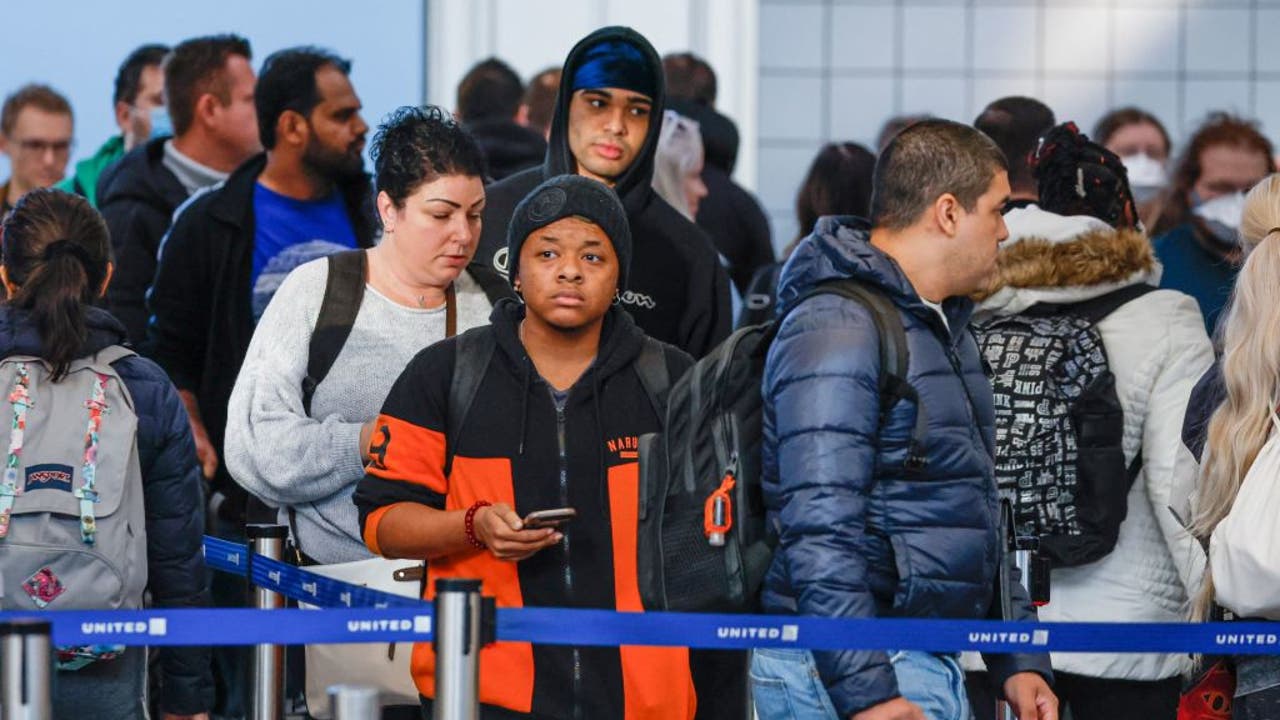Fashion
Here Are the New Rules of Workwear in 2024, According to Working Women

Kristin Hooper is the kind of fashion-obsessed advertising executive who mostly exists in rom-com montages. Her closet is lined with Bottega Veneta and Christian Dior; her idea of “a hoodie that hoodies” is a $990 Italian zip-up sweater from The Attico. But on a recent Monday morning, the 42-year-old stared into the abyss of her walk-in closet and felt like she had nothing to wear.
“It was like I had fashion amnesia,” says Hooper, who works between Atlanta, New York, and Paris. “All of a sudden, we’re back in the office full-time. I have new clients and new people in my office. I don’t want to just bring my A-minus game. I want to bring my A-plus-plus-plus game. And I had to ask myself, you know, what does that look like right now?”
Hooper was experiencing a bout of “work fashion freeze,” the paralysis that’s begun gripping women as they return to a “normal” office routine in a changed world. “Feeling totally confused about work style is common right now,” Julianne Costigan says. She’s a corporate stylist in Toronto who’s hired by companies and C-suite executives to level up their looks, especially before company-wide conferences and public events like panels. “We just went through this massive shift. We’re all wondering what’s next for us, professionally and maybe personally. How you’re perceived at work is integral to your success,” she says. “Sometimes, change starts with our clothes.”
Wanting to be taken seriously in the professional world doesn’t mean you have to ignore your own fashion instincts—in fact, they might help set you apart for the better. “When you’re the best-dressed girl in the office, it does come with some cultural capital,” says Sarah Kunst, the managing director of Cleo Capital, a venture firm that’s helped launch Ghia and Hill House into the stratosphere. “If you know the newer designers and the more forward-facing trends, it’s one way to show that you’re part of a deeper cultural conversation. It might help make you more visible on [creative] projects, especially if your leadership knows they’re not as tapped into that area.”
Instead of the pandemic’s beloved sweatpants—or the 2010s flared wool trousers—Kunst has spotted office-going women experimenting with High Sport Jules leggings. “You wear them with Alaïa ballet flats and long boxy blazers, and you’re good,” she says, noting that Holland Cooper’s $169 jodhpurs have a similar vibe. Kunst says she’s seen the leggings in action at once-staid law firms. “The women dress them up with statement jewelry and a Prada jacket.” Can’t buy into Miuccia’s utopia right now? Head to Uniqlo. The brand’s new creative director, Clare Waight Keller, made Meghan Markle’s wedding dress while at Givenchy. Now, she’s making oversized tweed jackets for under $50, and like Keira Knightley in Love, Actually, they are perfect.
For interview situations where you have to be “more of a blank slate” for bosses to project their own ideals of success, simplicity is your friend. “Build a meeting uniform that’s just a great, really crisp, oversized white shirt and a nice, clean pair of dark jeans or slacks,” says Bevy Reyes St. Pé Brown, an Ohio-based principal at Kirk Palmer, the executive search firm that hires for image-setting brands like Celine, Net-a-Porter, and Sephora. “Buy multiples, and stick to the uniform on interview days, because you won’t freak out about what to wear. You won’t be late. You’re going to feel confident, and you’re able to focus on what you want to say.” You can also use clothes to help say it: Details like a cuffed wrist can send the subtle message that you’re (literally) ready to roll up your sleeves and get shit done. Nili Lotan and The Row make gorgeous work shirts; $100-$200 versions exist at With Nothing Underneath and Citizens of Humanity. And if you’re terrified of spattered coffee, they make nifty striped ones that hide your inner klutz.
What about days with big meetings? “That’s when you want some armor,” says Mary Bonnet, the vice president at Oppenheim Real Estate (and the rare Selling Sunset star who actually sells homes for a living). “Get a really chic, classic, goes-with-everything blazer. I recommend them to every newer agent coming into work for the first time.” Bonnet and Hooper, the advertising executive, both swear by Saint Laurent’s navy four-pocket blazers, which they pair with L’Agence pants and fluttery Dior dresses alike. Unlike 90 percent of first dates, “the perfect blazer that you invest in for years is never going to let you down,” Hooper says. “But I’m a high-low girl from West Virginia. I did not grow up shopping like I do now! Banana Republic, Aritzia, resale, it’s all good. In fact, you’re viewed as more resourceful if you can find a great option at any price point.”
As for partywear—low-cut dresses, corset tops, platform heels—at the office, the consensus is to “layer, layer, layer,” says Kunst, the venture capitalist. “I actually love wearing a Hill House nap dress to work, with a slim turtleneck underneath and boots,” she says. “You can do a gauzy Pucci top if there’s a bodysuit. In some offices, you can do the tweed Chanel shorts with tights. Just be a little mindful.” Adds Bonnet, “I know on the show, we really push it with fashion. But whenever you’re meeting a client, you shouldn’t look like you’re going to the club. It makes you look like you’ve lost control of the situation.”
For day-to-night jaunts, Hooper has a trick: “Wear whatever cute tight dress or top you want. Then take a great scarf—you can find vintage Hermès scarves on eBay, even—and drape it across your neckline. You look elegant and sophisticated at work. Then you just take off the scarf and add a little more makeup, and you’re ready to go.” Hooper says the women in her office have begun copying the move on date nights.
Finally, are heels really necessary as proof-of-office-life? “Nope,” says every single woman surveyed for this piece. “Sneakers are considered professional attire now, especially when worn with a chic trouser and a jacket,” says Brown, the recruiter. Costigan, the corporate stylist, is relieved that stilettos are no longer expected in the boardroom. “You don’t need a heel to be taken seriously anymore, thank goodness,” she says with a sigh. “Anything simple and elegant that helps you stand tall—that’s your shoe.” Costigan loves platform sneakers from Stella McCartney or Bottega Veneta, along with uncomplicated Nike Jordans and Adidas Gazelles.
For Hooper, the work fashion freeze ended when she realized her mentor, the advertising CEO Donna Imperato, would strut into the office wearing bold Valentino prints, even when every other executive stuck to gray suits. “She knew that her energy and perspective were valuable, and that had to come through in her clothes. She didn’t have to get dressed for work. She got to get dressed for work. It’s not a challenge. It’s a privilege.”

Faran Krentcil is a fashion journalist and critic based in New York City. She is the founding editor of Fashionista and a graduate of Duke University. Her work has been published in the Wall Street Journal, Vogue, Harper’s Bazaar, and more.















